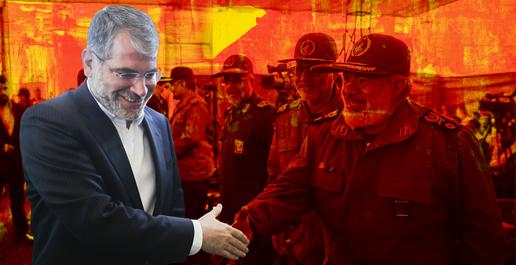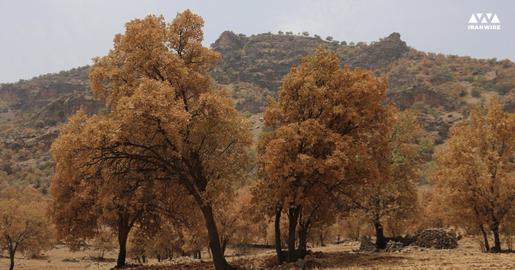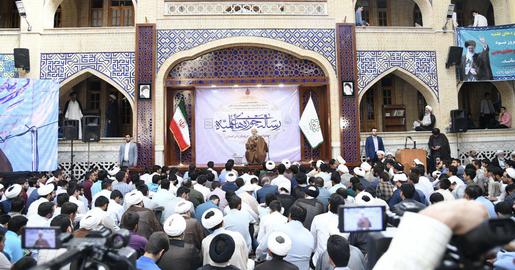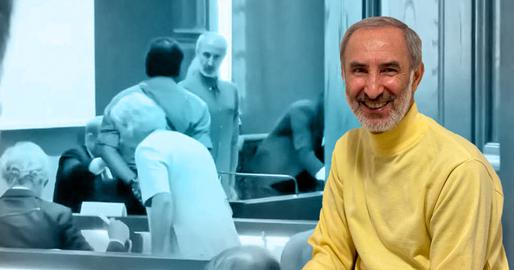Iran’s Foreign Minister Mohammad Javad Zarif has spoken for “the need for deep, brotherly and respect-based relations between the people of Iran and Iraq” during a visit to Iraq, raising questions about whether Iran might work toward greater unity within its own borders.
During a two-day visit to Iraq, the foreign minister met with representatives from Iraq’s religious minorities in Baghdad, who expressed a desire to deepen ties between the two countries.
So can Iran play a positive role in Iraq and help its government protect the rights of religious minorities there? Could Zarif’s meeting with Sunni Waqf and representatives of Christian, Mandaean, Turkmen and Izadi minorities, as well as representatives from culturally and socially diverse backgrounds, be a step toward a more inclusive Iranian policy abroad — one that could be then imported back home?
Professor Payam Akhavan from McGill University in Montreal, Canada sees Zarif’s reassurances as purely strategic, part of an overall pattern of Iran’s ambitions in the region. “Iran is a dominant power in Iraq, not an equal partner, and any role it plays is in furtherance of its geopolitical ambitions as a militarized Shia theocracy,” he said. Given Iran’s persistent persecution of its own minorities, Zarif's comments come across as disingenuous rather than a signal of any genuine offering of dialogue or unity. “There may be strategic alliances with religious minorities, as in the Syrian war, but these would appear precarious in light of the underlying sectarian ideology of the Iranian regime,” Akhavan said in an email to IranWire.
Akhavan points out, too, that Zarif’s political maneuvering is specifically aimed at the unique relationship between Iran and Iraq, and recent efforts for Iran to capitalize on the political climate in Iraq. “Iran is a Shia theocracy, and Iraq is a neighboring nation with a Shia majority,” Akhavan said. “Ever since the American invasion of 2003, Iran has infiltrated and invested heavily in Iraq. Following the withdrawal of US troops in 2011, and the rise of the Islamic State in 2014 — thanks in part to Shia sectarian discrimination and violence against the Sunni minority — Iran has emerged as the dominant foreign power in Iraq. Mr. Zarif’s outreach to Iraq’s religious minorities appears strategic, and consistent with Iran’s ambitions in the wider region, including in Syria and Lebanon.”
Obsessive Hatred and Denial
As activists, members of ethnic and religious communities, journalists, academics, and even some of Iran’s own politicians point out, the Islamic Republic has a long history of not only marginalizing the country’s minorities, but denying them access to human and civil rights, harassing and intimidating them, arresting them, and even executing them.
In particular, the Iranian regime has targeted the country’s Baha’is. ”Ever since the Islamic revolution in 1979, Iran has had an obsessive hatred for the Baha’i religious minority, which has consistently faced violent persecution and systematic discrimination,” said Akhavan. “This has remained unabated under the Rouhani administration despite promises of improved respect for human rights.” Recently, a judge in Alborz ruled that belonging to the Baha’i faith is not a crime and cannot be regarded as “propaganda against the regime” — a charge handed down to Baha’is on a routine basis. But even given this potentially landmark ruling, decades of overt discrimination suggest Iranian officials will not alter their behavior.
“The Gonabadi dervishes and other Sufi groups have also faced persecution, as have evangelical Christians,” Akhavan told IranWire. “There is also significant discrimination against Iran’s Sunni minority. None of this should come as a surprise given the sectarian ideology of the regime, which has even persecuted dissident Shia clerics calling for separation of state and religion in light of decades of violent repression and corruption among the ruling class.”
Akhavan’s comments support what many analysts and Iran experts have noted — that power in the Islamic Republic is much more about ensuring elite groups control the country, whether it’s foreign or domestic policy, the economy or how the judiciary operates, and far less about staying true to Islamic principles.
Zarif and other senior officials consistently deny that Iran’s minority religions are persecuted in any way and that when they have faced jail terms or other punishment, it is always because they have been found guilty of a crime. “This is simply not true,” said Akhavan. “And I am confident that President Rouhani and Mr. Zarif are fully aware that it is not true. There is overwhelming evidence of persecution and discrimination against religious minorities, and it is disingenuous to assume a progressive reformist image while acting as an apologist for sinister sectarian forces that have brought so much misery for the Iranian people.”
During Zarif’s visit to Iraq, Abdul Latif Al-Humim, the chief of the Sunni Waqf, said that he believed it was a religious duty to support Iran, particularly as it resumes life under US sanctions, showing a willingness for cooperation that is too often absent from Iranian diplomacy. As Akhavan puts it, “nations that respect religious freedom, and grant equal rights to all citizens, are prosperous and thriving nations.” This is the direction many Iranians would like the country to take — a move that would not only be good for social freedoms, but that would also allow the country to invest in its financial stability and a strong future.
“It isn’t difficult to imagine how much better Iran would be if, instead of investing so many resources in repressing religious minorities at home, and exporting sectarian ideologies and violence in the region, Iran would simply allow people to participate equally and in liberty in developing their nation," Akhavan continued. "Violence is a sign of weakness, not strength. With all its oil wealth and military and security forces, why is the Islamic leadership so afraid of religious minorities? A truly powerful nation wouldn’t be so afraid of diversity, which is after all integral to Iran’s ancient identity since the famous Cyrus cylinder of 540 B.C. Iran has been at its most powerful when it has practiced tolerance and benefited from the contributions of all those that call Iran their home. If instead of fanning sectarian flames Iran now prefers to promote inter-religious harmony, that would certainly be welcome — but given the regime’s ideology and past conduct, skepticism is appropriate."



























comments